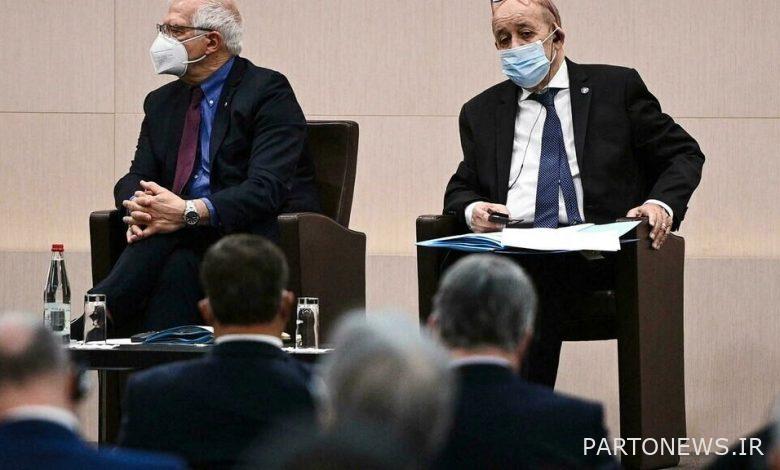A story from a news | Shifting Europe from Africa to Asia-Pacific

According to IRNA on Wednesday, in a meeting called “Indo-Pacific Cooperation Association” which was hosted by Paris and China yesterday (February 22nd), 27 EU member states expressed their desire to strengthen relations with countries in the Asian region. – Oceania spoke.
Paris spread the red carpet for all the major economies in the region, such as Japan, South Korea, India, Indonesia, Australia, and so on. The meeting, attended by about 30 foreign ministers from the East, addressed issues such as plans for digital technology, global warming and security. African countries, especially Mali, have in recent weeks challenged the presence of European troops on their soil, calling for an “immediate” withdrawal.
Background
According to Radio France, China is one of the partners of the European Union and at the same time in this strategic crossroads, it is the engine of global growth. The Indo-Pacific region accounts for 60 percent of the planet’s wealth. The European Union is already investing heavily in the region, but seems determined to take a step further in the face of China’s growing power.
“This is one of the most dynamic regions in the world, and this dynamic itself has challenges that are geopolitically competitive between the United States and China,” said EU foreign policy chief Joseph Borrell. This competition has a direct impact on the security and welfare of the countries in the region and for ourselves. Therefore, maintaining regional and rule-based order is of vital interest to us.
The importance of the subject
“We really want to help each other with our partners to break free from the trap of dependence in which specific influence strategies and hegemonic goals can trap us,” French Foreign Minister Jean-Yves Le Drian said at the meeting.
The French media wrote an implicit reference to China, although the French foreign minister did not name it directly. “Alliance with the Indo-Pacific region is not an anti-Chinese alliance,” he said, referring to Beijing’s criticism of the co-operation. This alliance is not against anyone, but for the development of partnership between India and the Pacific and the European Union, and respects the sovereignty of each country.
Finally, he called the EU’s new strategy for the region an “alternative development proposal” to justify China not being invited to the summit.
France has an older presence in the region due to its islands in the Pacific, and has been working since 2016 to persuade the European Union to take advantage of this capacity. In an analysis last week, Marianne Peron-Douaz cited the Sino-US rivalry as the most important threat to this approach.
The name of the United States and its influence on the Asia-Pacific equation for the European Union, and especially France, is reminiscent of the recent Agos agreement. During the agreement between Australia and the United States, Sydney canceled a multibillion-dollar contract to buy submarines from France in a new security agreement with the United States to receive the technology to build nuclear-powered submarines. This became a major challenge in Franco-US-Australian relations.
Assessment
France and many European countries, using their colonial history, continue to violate their patriarchy for African countries, and these countries continue to host military forces under any pretext for years after independence. This long history of presence in recent months has been challenged by some countries, including Mali in West Africa, and France has been accused of interfering in its affairs. Belgium and Denmark are also facing the demand for the withdrawal of their troops from Africa.

It now appears that Europe’s shift from Africa to Asia-Pacific has become so important that a meeting of the Indo-Pacific Cooperation Association hosted by Paris will be held despite rising tensions over the Middle East. Tensions that have forced the French president to redouble his efforts to validate Europe’s position amid tensions between the West and the East.
It remains to be seen to what extent the EU’s new approach to the Asia-Pacific region will work, despite three major competitors, including China, the ASEAN Free Trade Area and the United States.

